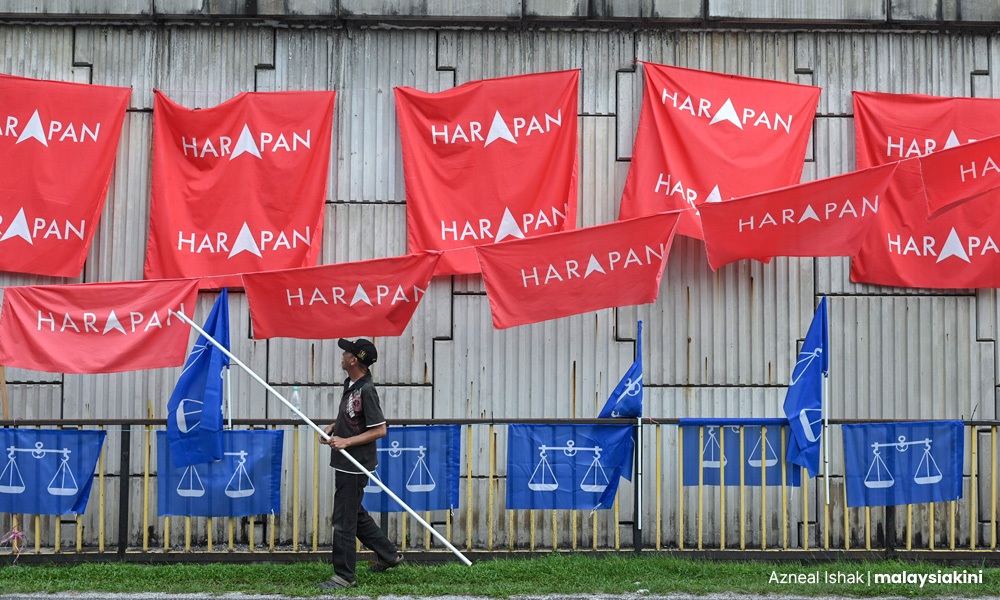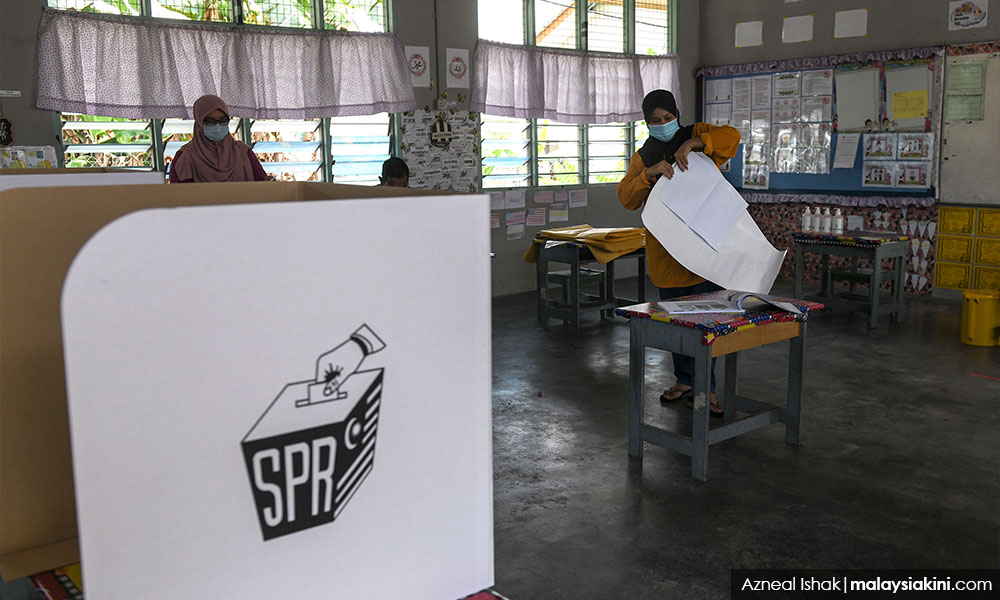LETTER | The Election Commission (EC) has announced state elections for six states after the states had reached their maximum term of administration. The six states - Kelantan, Terengganu, Kedah, Penang, Selangor, and Negeri Sembilan - did not hold elections simultaneously during the general election in November 2022.
Many political analysts are predicting the status quo in three states (Penang, Selangor, and Negeri Sembilan), that is, they are expected to remain under Pakatan Harapan-BN control while Kedah, Kelantan, and Terengganu would continue to be administered by a Perikatan Nasional government.
However, the battles in Selangor and Negeri Sembilan will be closely watched as vote swings in these two states are expected to be more significant.
The Harapan-BN cooperation in the federal government will be tested in the state elections. It is no secret that supporters of both Harapan and BN have reservations about the working partners and many are still uncomfortable with this marriage between long-standing enemies.
Based on a recent survey by the Institute of Strategic Analysis and Policy Research (Insap) among voters in Selangor and Negeri Sembilan, only 34 percent of respondents said they were happy with Harapan working with BN and 31 percent of respondents said they were not happy with Harapan working with BN.

Vote transferability between Harapan and BN supporters remains a key challenge to both coalitions – that is, getting their core supporters to support the other coalition partner.
With this in mind, Insap simulated a possible outcome of the state elections in Selangor and Negeri Sembilan based on the results of the 15th general election.
After factoring in the possibility of Harapan-BN losing support from their own supporters, it would still be hard for PN to obtain a simple majority in Selangor and Negeri Sembilan due to the fact that Harapan still has a very strong core base in these two states.
As for BN, it is still a highly recognisable coalition in Negeri Sembilan.
Assuming 70 percent of the voters who voted for Harapan in GE15 turn out to vote, PN must swing 50 to 55 percent of BN votes to win enough seats to control Selangor with a simple majority.
If Harapan-BN manages to convince more supporters to turn out to vote, say 80 percent turnout, PN would need to convert as much as 60 to 65 percent of BN votes in GE15 to its side in order to form a government in Selangor.
Uphill task
Having to convert over half of BN voters to PN supporters may seem a daunting task on paper, but nothing seems impossible, especially with rising frustration among Malaysians towards the state of the economy, and the lack of a national economic recovery plan.
Likewise, in Negeri Sembilan, PN has an uphill task of convincing 50 to 55 percent of BN voters to switch support to gain simple majority seats in the state, if Harapan brings in 80 percent of its supporters to vote in the coming state polls.
This means that even if Harapan were to lose 20 percent of its core support and BN half of its voters, it would still not be a walk in the park for PN candidates in Negeri Sembilan.
However, if Harapan-BN fails to get their respective supporters to turn out to vote for either coalition, PN would only need to swing 50 to 55 percent of BN votes to capture at least 18 seats out of 36.
Political lethargy is an issue for all political parties, with Malaysians now more concerned with bread-and-butter issues, and the direction of the economy, or the lack of it.

After nine months since the national election, Malaysians are showing signs of fatigue towards political messages and promises, especially those unmet expectations created by political parties now in power.
For the same reason, the ability of Harapan-BN to sell their brand to their respective supporters is the real challenge, bearing in mind that Harapan and BN were fighting tooth and nail in the November 2022 general election.
Efforts to get out the vote would help make vote transferability easier for Harapan-BN, especially among returning voters (those who do not reside in their voting location).
Harapan-BN management of their grassroots discontent would be crucial to its survival in Selangor and Negeri Sembilan, as ground intelligence showed that emotions towards the cooperation between two groups of sworn enemies are still unsettling, particularly among more conservative Malays.
Should they fail to manage it, voters may cast their ballots for PN or Muda as a form of protest.
SIA Bik KAI is the director of Institute of Strategic Analysis and Policy Research (Insap), an independent think tank.
KAT W WONG is deputy director of Insap.
The views expressed here are those of the author/contributor and do not necessarily represent the views of Malaysiakini.

